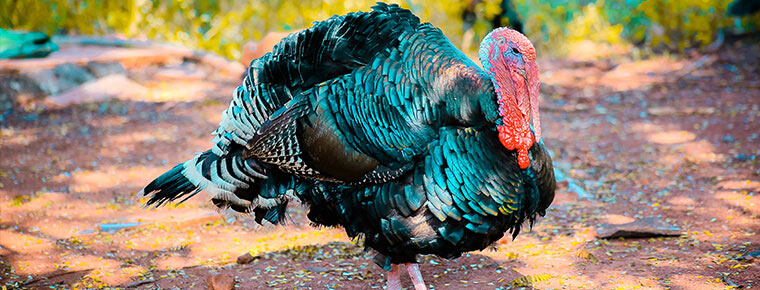
Turkey Shopping Tips for Thanksgiving 2020
Thanksgiving is Thursday, November 26. With safety and wellness top of mind, many people are choosing to stay home and cook their own turkey. Get the best bang for your bird buck and check out our turkey-shopping tips below.
Figure Out How Much Turkey You Need
The basic rule of thumb is: 1 pound of uncooked turkey per adult dinner guest. If you have children or light eaters attending, use a “Turkey Calculator” to estimate the size of the bird.
Pick out your Turkey: How to Save, What to Buy, and Where to Buy it
Once you know what size bird you need, it's time to go shopping. To get the most bang for your bird buck:
- Some churches and organizations offer free turkeys, full meals, or sides, look online as we get closer to Nov 26th.
- Shop membership clubs or co-ops for additional savings.
- Compare prices and look for deals: Many of our grocery stores offer a free turkey with a certain dollar amount in groceries purchases. If you don't get a mailer, you can usually find them just within the store's entrance.
- Get a smaller bird. Based on an assumption of smaller gatherings this year, some stores are opting to sell smaller turkeys. But if you want leftovers, buy the bigger bird. Just make sure you have room in your fridge or freezer.
- Consider buying turkey breast if you don't want the full turkey experience.
- Skip a turkey with a pop-up timer. They aren't usually accurate and sometimes they don't pop.
Frozen Turkeys
Cooking a traditional turkey? That means you will be picking up your bird frozen.
Where to buy:
- Try your local grocery store or other retailers
- Order ahead online from your grocery store or other retailers
Fresh Turkeys
Prefer a fresh turkey? Buy your turkey only 1 to 2 days before you plan to cook it. Pro tip: Place your turkey on a tray or in a pan to catch any juices that may leak while it's stored in the fridge.
Where to buy:
- Contact a local co-op, farmer's market or butcher.
- Try your local grocery store or retailer.
- Consider ordering online. Many retailers offer fresh turkey delivery and some even pre-cook your turkey.
Organic, Natural, Pasture-Raised Turkeys
Poultry labels can be confusing. Take a look at this article to understand what each label means. Your best bet is to do your research and talk to the farmer. Note that turkeys that have lived the good life tend to be more expensive.
Where to buy:
- Google "farm turkey" along with the name of your city; while some are no longer taking pre-orders, many still sell directly from their farm
- Seek out a local co-op, farmer's market or butcher
- Check with high-end markets
- USDA's Turkey from Farm to Table article
Smoked Turkeys
The joke about your neighbor smoking a turkey on the lawn? That neighbor is now the envy of the block. As barbecue popularity expands, so does the desire for smoked turkeys, often available from your favorite barbecue food truck or joint.
Where to buy:
- Ask your BBQ joint if they're cooking up turkeys for the big day
- Google "smoked turkey" along with the name of your city (or a nearby metropolitan, e.g. Seattle)
- Convince your spouse, partner, or roommate that now is the time to throw down for that smoker and do it yourself
Follow Turkey Safety and Safe Cooking Guidance
Before you thaw that turkey or cook it, check out the USDA Consumer Guide to safely roasting turkey. You will find the following information:
- Fresh vs. frozen
- Three safe ways to thaw your turkey
- Time-tables for roasting
- Safe cooking basics
- Storing your leftovers
- Using your airfryer for reheating
For more information about food safety (in English and Spanish), call: USDA Meat and Poultry Hotline, 1-888-MPHotline (1-888-674-6854).
At the end of the day, whether it's roasted, stuffed, trussed or smoked, enjoy your time with family and friends. BECU gives thanks to you, our members!